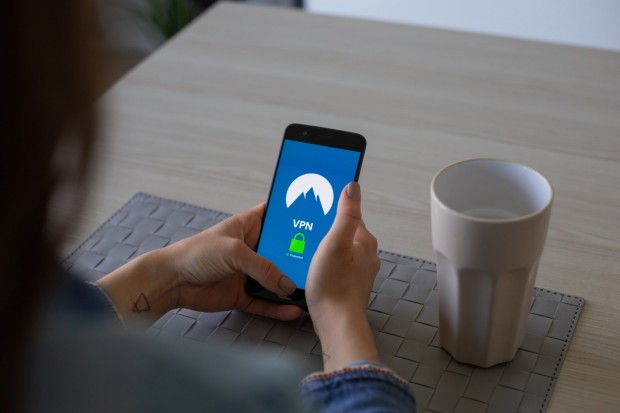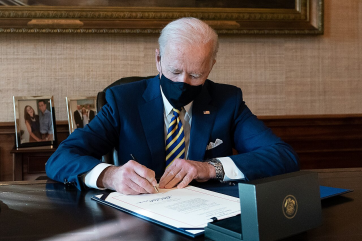Photo : Petter Lagson on Unsplash
If you're looking for an expat VPN, you might feel overwhelmed by all the options on the market. There are literally hundreds of VPNs out there, with more and more popping up almost each month.
How do you know which one to use? Testing them one by one just isn't possible.
Well, we put together a quick list of 5 must-have features any expat VPN should offer. If you're in a hurry and don't have time to read this right now, you can use different VPN guides for expats from ExpatTech to find a good service.
With that out of the way, here's what any good expat VPN should offer:
1. Large Server Network
For starters, you need a VPN with a big number of servers. As long as the service has over 1,000 servers, you should be fine.
Why so many VPN servers?
Because it's going to be much easier for you to find a server that's near your current location. That way, your data will travel faster between the VPN server and your device. So, you'll get faster VPN speeds.
Besides that, a large server network means you don't need to use overcrowded VPN servers. That also causes slowdowns.
Finally, if there are tons of servers to choose from, you'll be more likely to find one in your home country. That way, you'll manage to unblock websites that are only available there.
2. Unmetered Data
Unmetered data (also called unlimited bandwidth) means the VPN provider doesn't limit how much data you can use while connected to their servers. You can browse as many sites as you want, watch as many videos as you want, and game online for whoever long you please.
Why is unlimited bandwidth important?
Because it means you can actually enjoy using the VPN. If the service would have 2 GB bandwidth caps per month, for example, you wouldn't be able to watch anything, really. For example, if you were to watch HD videos on Netflix, you'd eat up around 3 GB per hour. With a 2 GB bandwidth cap, you'd barely be able to watch one-two episodes or half of a movie. If you use SD quality, you only consume 1 GB per hour, but that's still limits your options.
3. Easy-to-Use Apps
Let's be real - nobody wants to learn how to set up a third-party VPN client just to be able to unblock a website. VPNs already sound like very complicated tools, so you need a VPN provider that makes the whole process extremely simple. These are the only steps you should need to follow:
-
Create an account and pay for a subscription.
-
Download and install an app.
-
Use the app to connect to a VPN server.
The VPN apps should have a user-friendly interface and should be intuitive to use. You shouldn't need a long tutorial to understand how to connect to a server or how to switch to a different VPN protocol.
Also, the VPN provider should have apps for the most popular platforms - iOS, Android, Windows, and macOS. If they have Linux and smart TV apps, even better.
4. A Kill Switch
A kill switch is a feature that acts like a firewall - it blocks all outbound and inbound traffic on your device. It does that when the VPN connection drops. While it sounds weird, a kill switch is very useful. It protects you from traffic leaks.
That means that if your VPN disconnects, your ISP can't spy on your traffic during those few seconds it takes the VPN to reconnect. The government can't do that either - which is really helpful if you moved to a country that censors the Internet like China or Saudi Arabia.
Some VPNs even have app-level kill switches. You can configure them to disable Internet access for specific apps when the VPN disconnects. If you moved to a country where torrenting isn't legal, you can configure the VPN to disable your torrent client when it disconnects.
5. A Money-Back Guarantee
VPNs cost money. Yes, there are free VPNs, but they're not worth it. They're slow, buggy, and not safe to use (they log your data and expose you to malware).
To help you buy with no risk, many VPNs offer money-back guarantees. Basically, if you're not happy with the service, you can ask for your money back within a specific period (usually 30 days, some VPNs even offer longer refunds).
Always read the TOS to make sure the VPN you're looking into has a refund. Some providers ask you to meet certain requirements to qualify (like not using more than 10 GB of data), so keep an eye out for that. If you can find an expat VPN with a no-questions-asked refund, that's perfect.
Optional Features That Make a VPN a Good Pick
There are also other features you can check. We don't really consider them 100% mandatory, but if a VPN has them, it can improve the user experience:
-
Obfuscation - This is a feature that hides your VPN traffic by adding another layer of encryption. It's only useful if you live in a country that uses DPI (a way to analyze network traffic) to block VPN connections.
-
Split-tunneling - This feature lets you choose which traffic goes through the VPN and which traffic goes through your ISP's network. It's useful for optimizing VPN speeds.
-
Fast protocols-As long as you can use OpenVPN, your traffic will be safe. But it'd also be nice to get alternative protocols that are faster - like WireGuard, IKEv2/IPSec, or L2TP/IPSec.
Conclusion
When we look for good expat VPNs, we mostly look at five things:
-
The server network
-
If it has unlimited data
-
The apps (ease of use + cross-platform compatibility)
-
If it has a kill switch
-
If it has a refund policy
What other things do you check when buying a VPN? Please let us know in the comments.
* This is a contributed article and this content does not necessarily represent the views of universityherald.com









